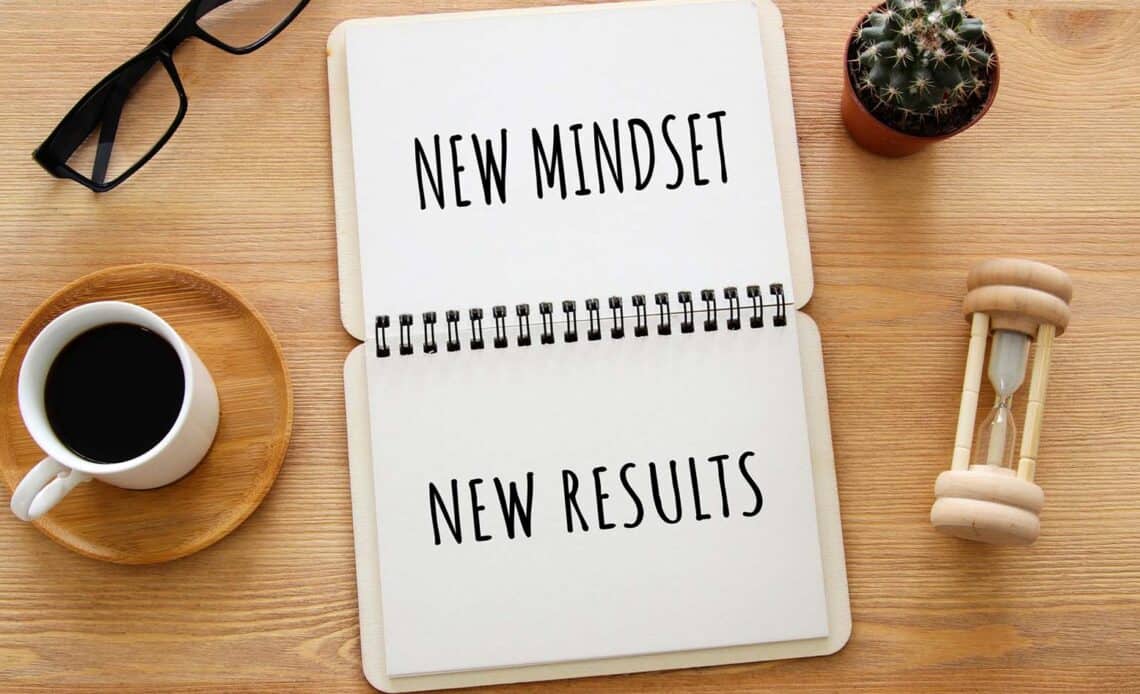
Do you believe that a skills-based upbringing is more effective than traditional education?
Hold that thought and read on…
The debate between skills-based upbringing and traditional education has gained momentum in recent years. As the world rapidly evolves, so too do the demands placed on the workforce. Traditional education, with its focus on rote learning and standardized tests, is increasingly being scrutinized. Can it truly prepare our students for the complexities of the ever-changing landscape of modern life?
Enter skills-based education, a rising star in the world of learning. It’s practical, hands-on, and rooted in real-world applications. It’s like swapping a map for a compass: teaching our kids not just where to go, but how to navigate the terrain themselves. But is the better path? Let’s delve in, exploring the strengths and stumbling blocks of each approach, and see which one might light the way forward.
Understanding Traditional Education: The Tried-and-True Path
Traditional education, like a well-worn library is structure, predicatable, and filled with the wisdom of the ages. It typically focuses on academic achievement with curriculum built around core subjects like mathematics, science, literature, and history. Standardized tests act as gatekeepers, measuring progress and ensuring accountability. This system is designed to build a broad foundation of knowledge base, preparing students for higher education and the workforce.
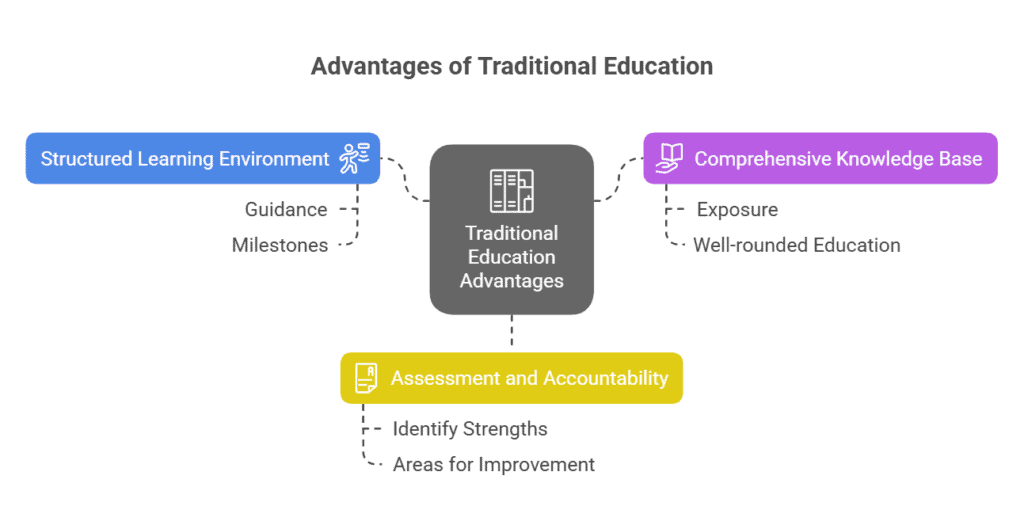
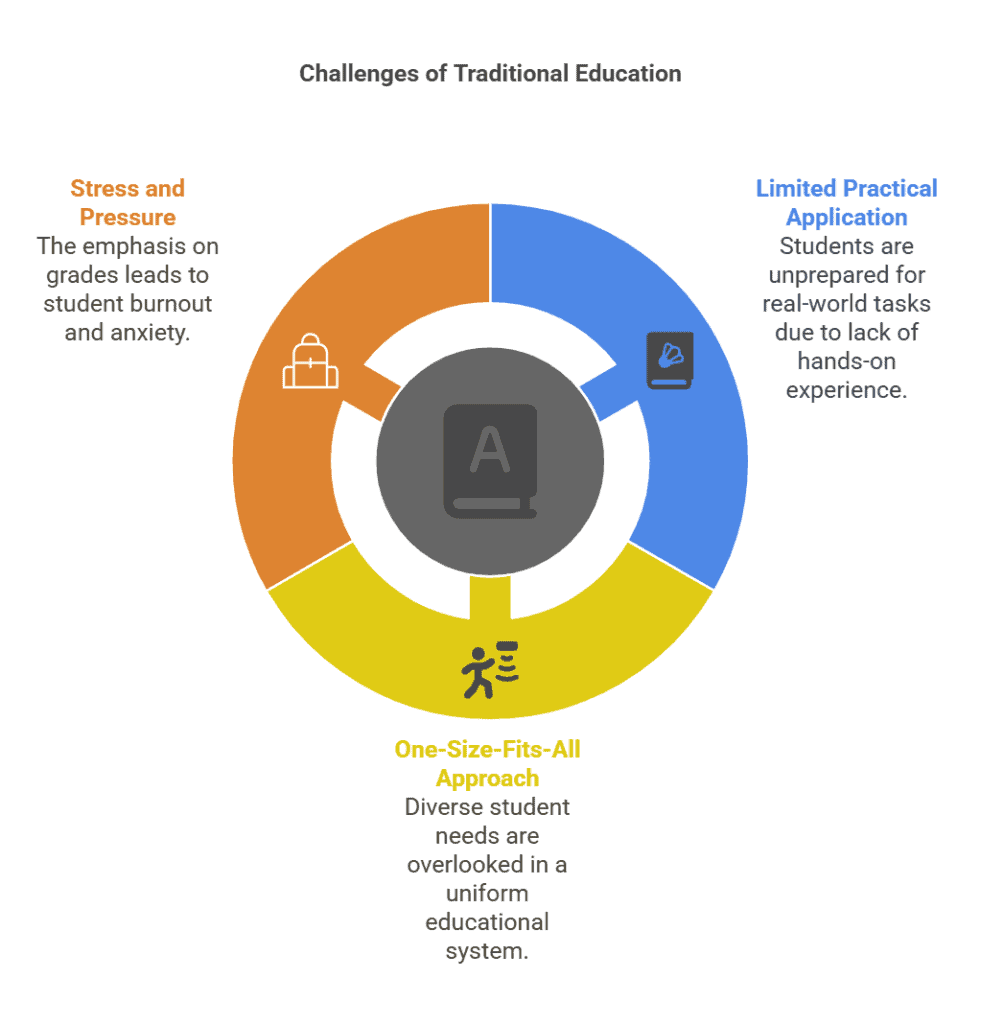
Understanding Skills-Based Upbringing: The Road Less Travelled
Skills-based upbringing is like a vibrant workshop: alive with curiosity, creativity, and hands-on learning. It focuses on developing practical, real-world skills: critical thinking, problem-solving, emotional intelligence, creativity, and adaptability. This approach involves experiential learning, project-based activities, and opportunities to apply knowledge in meaningful ways. It’s about equipping our children with tools.
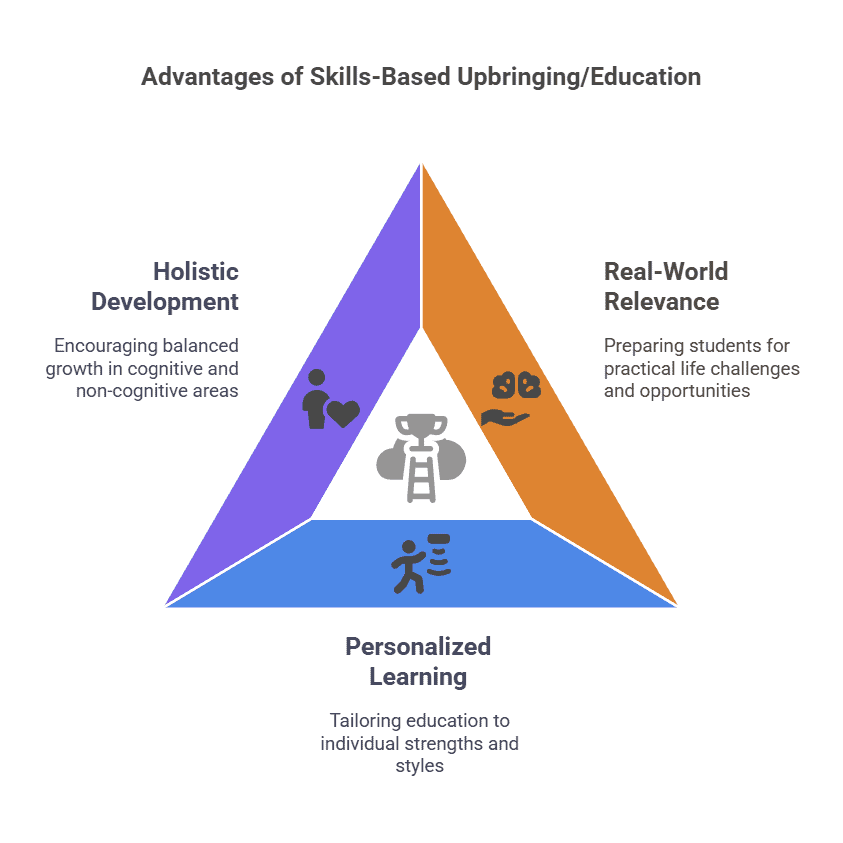
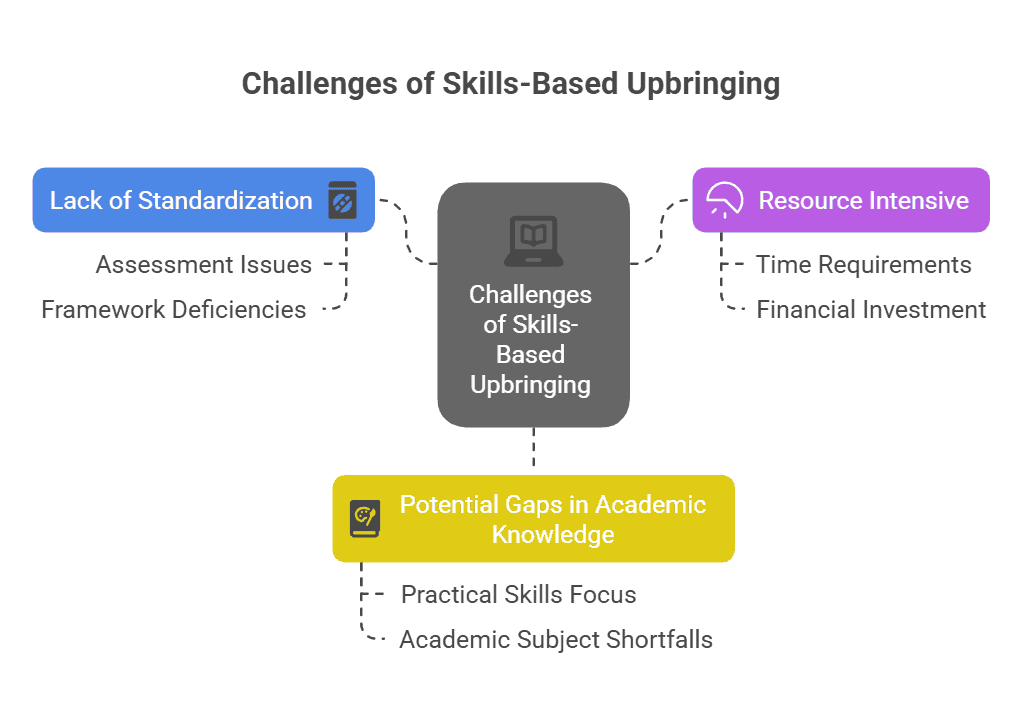
Comparing Educational Approaches for the Modern Workforce
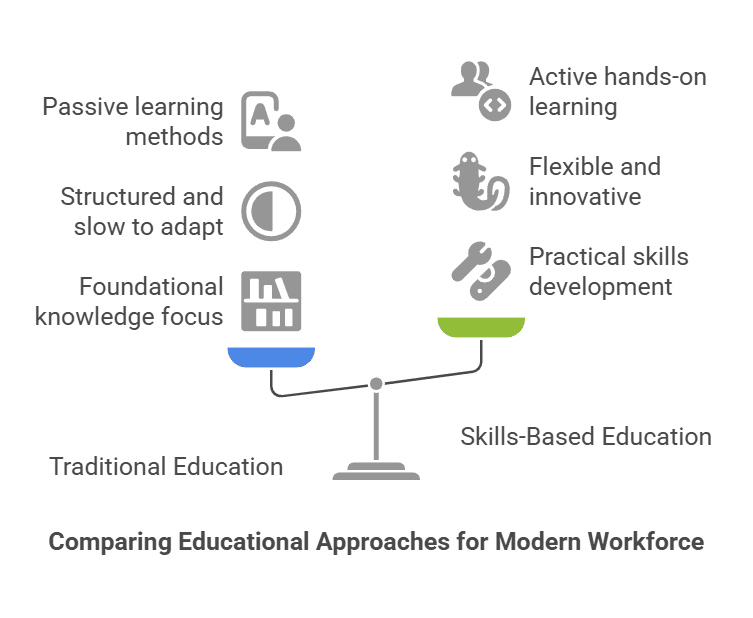
How do they prepare one for workforce readiness?
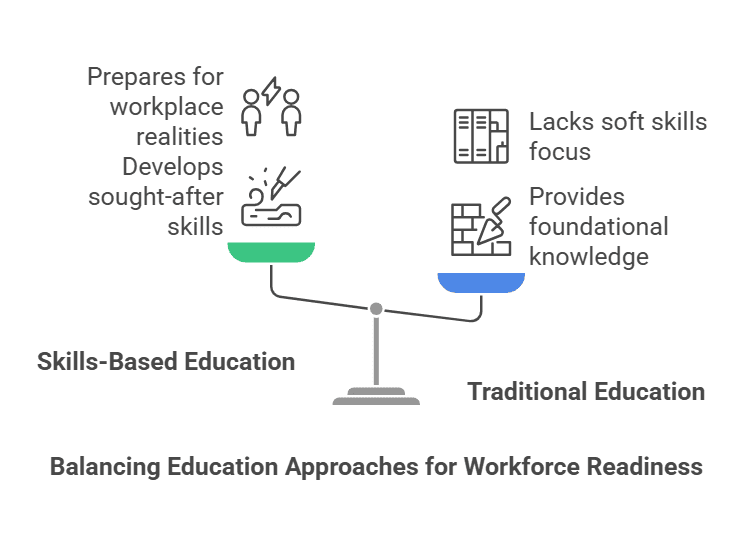
How do they compare for adaptability and innovation?
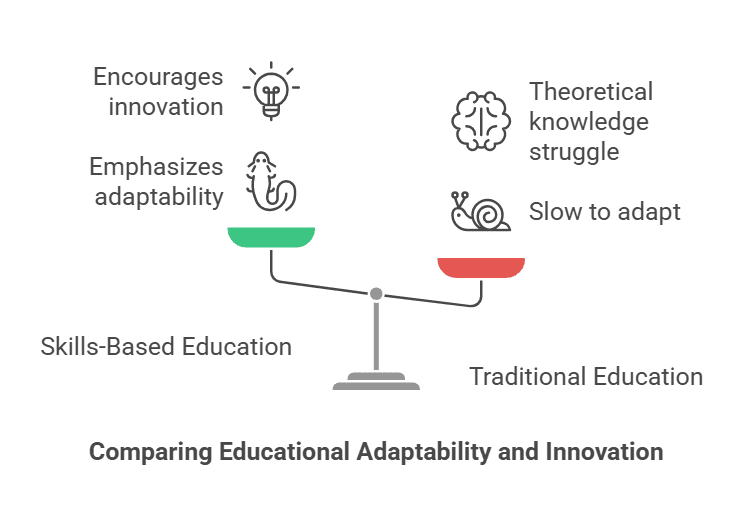
How do they support emotional and social development?
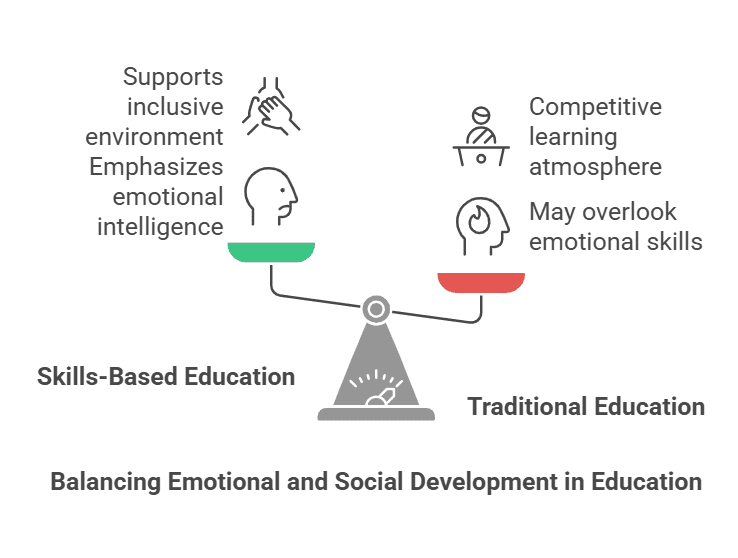
The Future of Work: How Skills-Based Education is Changing the Game
Imagine a world where education ignites possibility, not just filling minds with facts. Where kids don’t just memorize equations but tackle real-world challenges with creativity and resilience. This is the power of skills-based learning: a hands-on, dynamic approach preparing students for an unpredictable future.
Traditional education builds a strong foundation, but real growth happens when knowledge meets action. It’s not about choosing one over the other, it’s about blending academic rigour with practical skills. Think of it as a symphony: theory sets the rhythm, while hands-on learning creates the melody, equipping students to lead, innovate, and adapt in an ever-changing world.
The goal? To nurtute well-rounded individuals who thrive. Picture a child who can dissect a complex problem with the precision of a scientist, yet approach it with the empathy of a friend. A child who doesn’t just chase success but defines it on their own terms. This is the power of a holistic education: one that fosters critical thinking, emotional intelligence, and an insatiable curiosity for lifelong learning.
As we stand at this crossroad, the question isn’t which path to choose but how to weave them together. Consider your child’s unique needs, their dreams, and the world they’ll inherit. Because the future of work is about preparing hearts and minds to embrace a world of endless possibilities. And with the right blend of tradition and innovation, we can help them not just meet that future but shape it.
Related Posts:
- Skills-Based Upbringing for Children: Shaping the Future Workforce
- Exploring The Future of Work: Fascinating Trends Uncovered
- Preparing For The Future: Upskilling Young People and Employees
My dream is for an education system that combines the rigour of traditional learning with the creativity of skills-based development. A system that doesn’t just teach kids what to think, but how to think. A system that prepares them not just for tests, but for life.
What do you think? Could this be the future of education?
Let’s keep the conversation going in the comments below, because the way we teach our children today will shape the world they build tomorrow.
Thank you for being a VCC reader.

